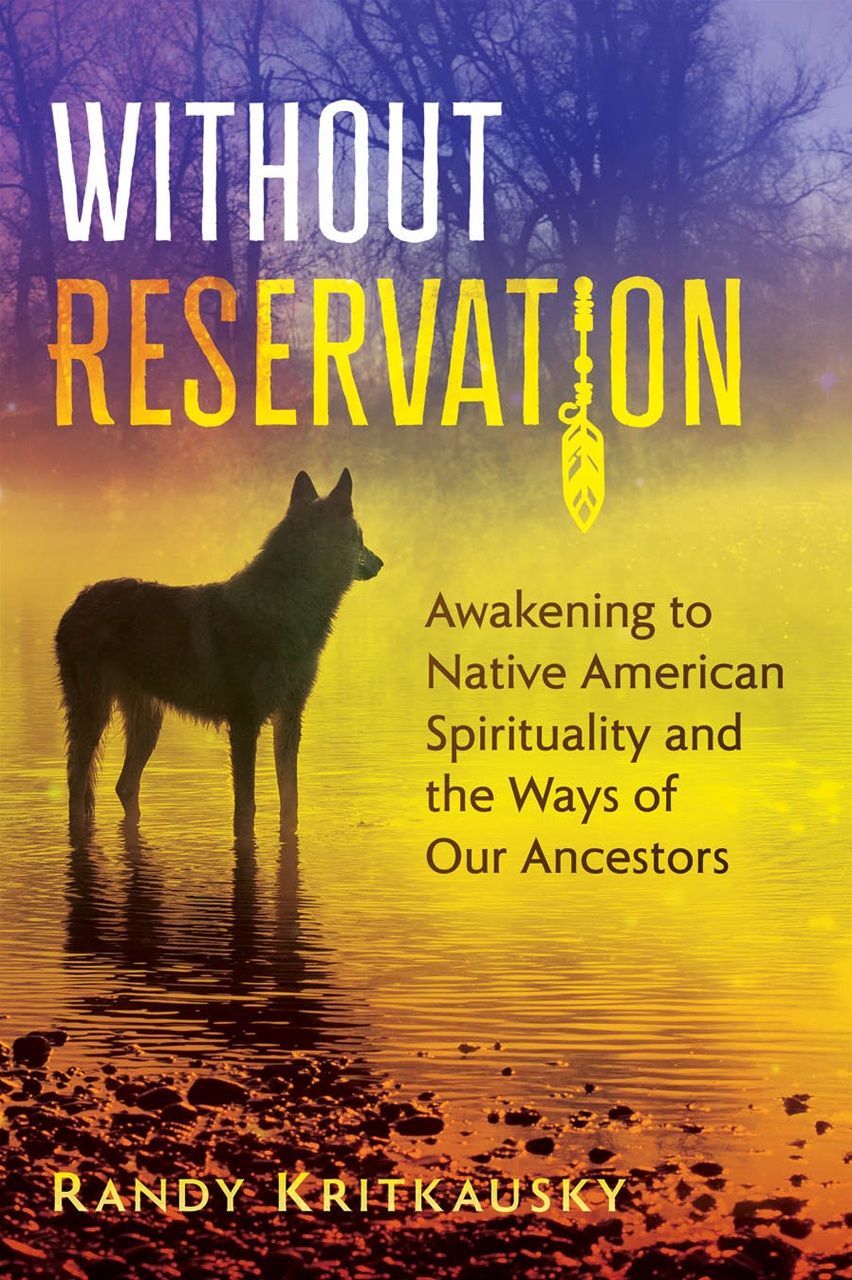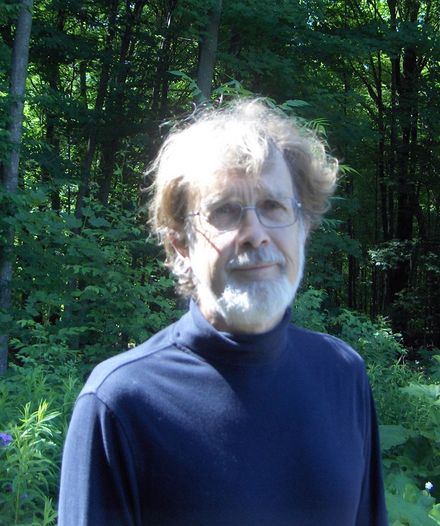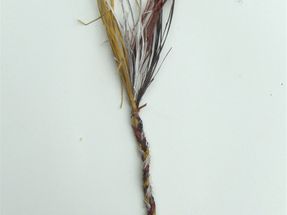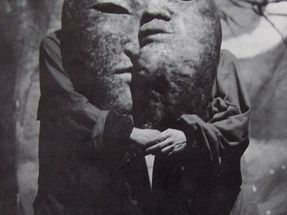Randy Kritkausky, Author
How Without Reservation came to be.
As my awakening unfolded I initially wrote something like journal entries so that I would have a precise record of wondrous events that were happening in my life. They were precious and I feared that, like fleeting recollections of dreams, the richness and detail might vanish from my memory.
I also wrote to colleagues and elders seeking their input on what were often perplexing occurrences that my rational academically oriented mind could barely grasp, no less explain. But mostly I found myself just writing brief stories, accounts of intimate encounters with kin from the world of nature and with what I could only describe as the whisperings of my ancestors.
When friends, neighbors and colleagues asked me what I was up to recently, at first I hesitated to describe experiences that I thought they might find strange and unbelievable.
However, from the first experience of telling my story, I think it was the encounter with Coy-Wolf, I found listeners eager and relieved. Most were attentive and wide eyed, and they acknowledged that they had rare encounters of a similar nature, but hesitated to share the experiences.
They knew that our highly rationalistic culture viewed, quite skeptically, anyone claiming to have direct spiritual encounters outside of the walls and boundaries of recognized religious institutions.
When I became aware of this shortcoming in our culture, and my own life, I decided that it would be useful, indeed it was necessary to turn my musings into a book. So I decided to write a book that would give people in the mainstream permission to open the gates to more than just occasional intimate encounters with nature and ancestors.
I wrote in the hope that I was not just describing something unique to Native Americans, but that I was addressing a neglected universal human need for spiritual connections and encouraging the cultivation of this capacity.
About the book
Without Reservation: Awakening to Native American Spirituality and the Ways of Our Ancestors, by Randy Kritkausky
A powerful story of spiritual awakening, reconnection with Nature, and rekindling of ancestral wisdom, Randy's book details his encounters with ancestral spirits and animal teachers such as Coy-Wolf, and profound moments of direct connection with the natural world.
Without Reservation shows how ancestral connections and intimate communications with Nature are not unique or restricted to those with Indigenous cultural roots.
The book reveals how reconnection with ancestors and the natural world offers insight and solutions for the complex problems we face. We are but a few generations removed from millennia spent living in intimate contact with the natural world and in close commune with ancestral spirits; who we are and who we think we are is all rooted in historical connections with those who came before us, and in our relationships with the land and the sentient natural world.
When we wander too far from our roots, our ancestors and kin in the natural world call us home, sometimes with gentle whispers, and sometimes in loud voices sounding alarms.
Like 70 percent of those who identify as Native American today, Randy grew up off the reservation. As he explains, for such “off reservation” Indigenous people, rediscovering ancestral practices amounts to a re-awakening and offers significant insights about living in a society that is struggling to mend a heavily damaged planet
.
The author reveals how the awakening process was triggered by his own self-questioning and the resumption of ties with his Potawatomi ancestors. He shares moments of direct connection with the natural world, moments when the consciousness of other living beings, flora and fauna, became accessible and open to communication.
Offering a bridge between cultures, a path that can be followed by Native and non-Native alike, the author shows that spiritual awakening can happen anywhere, for anyone, and can open the gateway to deeper understanding.
Randy Kritkausky is an enrolled tribal member of the Citizen Potawatomi Nation. He is a founder of ECOLOGIA, an international environmental organization. His past academic positions include: Associate Professor at Keystone College, Research Scholar at Middlebury College, and Erasmus Mundus Scholar visiting position at the Central European University in Budapest and Lund University in Sweden. He now lives in Vermont.
Indigenous Perspectives Podcasts
Podcasts, print transcripts, supplemental materials: https://www.ecologia.org/news/indigpers.html
Our monthly show hosts guests from the United States, Canada, and around the world who offer a wide range of views on issues of concern to Indigenous Peoples such as colonial history, rights of nature, animism, contemporary issues, and treaty rights. It also provides inspiration for those who seek a deeper understanding of what Indigenous cultures offer contemporary society more generally.
Talking Leaves Forum
www.talkingleavesforum.org
New web platform (2023) for materials exploring Indigenous issues. Includes all Indigenous Perspectives podcasts and transcripts, research papers, fiction and poetry, etc. Find more of Randy's writings there.
Indigenous Advocacy
Working from the perspective of being both an author and registered tribal member, Randy Kritkausky has initiated a Change.org petition requesting that The Wall Street Journal cease its 60 year old tradition of publishing an insulting and racist 17th century Pilgrim journal excerpt on Thanksgiving. For information on the initiative or to lend your support visit: https://www.change.org/p/end-the-wall-street-journal-s-thanksgiving-insult-to-native-americans
Order Without Reservation here:
https://www.indiebound.org/search/book?keys=Kritkausky
About The Author
My writing is informed by three decades of international and domestic grassroots work on environmental issues ranging from environmantal justice matters in the United States to Chernobyl, desertification in China, and corporate social responsibility. This work is described on the website of an international non-profit that I co-founded, ECOLOGIA, https://www.ecologia.org/ .
My Blog
I could hardly imagine the degree and suddenness of turmoil that would envelop our world as I finished writing my book. Looking back, it now appears that my intuition was, even then, pointing to things to come, or perhaps it was my ancestors' history and memories informing my intuition. Or, perhaps it was that spiraling nonlinear time I write about, that allows us to occasionally sense the future even as we look backward. In any case, I feel obligated to build on the final chapters of my book which touch on the topics of pandemics and racial conflict, realities of Native American life for 500 years. Here I offer my reflections on current events. They are informed by my cultural legacy as I am discovering and exploring it. Your feedback is invited. You can contact me at: randykritkausky@hushmail.com
June 2020 - Reflections on Racial Injustice
I created the following poster, which is imagined in the final pages of my book where I discuss mistaken notions of human evolution, race, and white supremacy, and where I offer, literally, an alternative vision. The visual image below just came to me as do my stories. It incorporates cultural elements of Native American medicine wheels, the four colors found therein, and one of our sacred herbs, typically grown within a medicine wheel garden. I hope the image can be widely distributed. It is licensed under Creative Commons with the stipulation that it not be sold or used commercially, and that I be recognized as its designer, as per the small print at the bottom. A colored image could not be placed in my book, so I welcome this opportunity to build upon writing just finished.
A Single Point of Light: May 30, 2020
We are back sleeping on the screened-in porch where, tonight, I gazed at the Strawberry Moon’s dimming light in a hazy sky. The moon vanished behind clouds as I fell into slumber. Then at midnight, exactly, I was awakened by a single flickering point of light which beckoned. Wawatési, (Potawatomi for firefly) is back. Unlike in recent years, and in particular three years ago when my mother lived her last days with us, and when fireflies in great profusion awakened me nightly, there is just one this night.
What does a solitary living point of light in total darkness mean? Perhaps it is acknowledgement of my day spent tending and securing a small raised bed of full of strawberry plants during a strawberry moon? I have been disappointed with my strawberry non-harvests of recent years. Chipmunks seem to think that we raise strawberries just for them. They wait until the berries ripen and then gnaw each one as it reaches the peak of perfection. This year there is a profusion of chipmunks. I was nearly tripping over them as I worked in the garden. Without the fine wire mesh cage I have placed around and over the berries, we two-legged would have none. I hesitated to barricade what must be a seasonal treat for adorable little rodents. But this year wild strawberries are everywhere in great profusion. Those delectable and accessible wild berries will be more than adequate for our smaller kin. Please Mother Earth, let us also enjoy our healing strawberries this Strawberry Moon. In 2020 we need this traditional healing medicine more than usual.
Perhaps it is such healing, and such a healing message, that Wawatési brings to me tonight? If so, it is a comforting affirmation of the message hanging in our house entryway, printed on a poster from the Bread and Puppet Theater which gifts Vermont with its presence in the town of Glover, near our northern border with Canada.
Photographer: Etienne Georges, Image courtesy of Bread and Puppet Theater
This is a welcome echo of other hopeful aphorisms about light in times of darkness. “Tis better to light a single candle than to curse the darkness.” Or “a thousand points of light”. President George H. Bush invoked the latter notion repeatedly, and even created a Points of Light Foundation to officially recognize volunteer efforts aimed at community improvement. A small college where I taught nominated me for the award because of my involvement in local grassroots environmental work. I was unaware of their effort to bring attention to one of their faculty until my consolation prize arrived in the mail. I was not an official Points of Light awardee. Instead, I was given a facsimile signed card with a raised golden embossed presidential seal and some nice words about my work being “a shining example for us all”. I felt like a tiny birthday cake candle rather than a lighthouse beacon.
I have struggled, my life long, with local grassroots efforts which sometimes feel like “a candle in the wind”, to borrow yet another light metaphor, this one from Elton John’s song of the same name. Recently the headwinds have felt like they pack hurricane force. And holding that flickering point of light, so that it does not go out, has too frequently seemed next to impossible.
Until earlier tonight. I attended a demonstration in the nearby town of Middlebury, Vermont. The impetus for my action was the death of George Floyd, the latest in a growing list of black people who have been murdered by police. I was concerned that only a few dozen dedicated members of our local social justice advocacy community would show up. But, hundreds of people of all ages, and many racial and ethnic backgrounds, lined our town’s streets and bridge holding signs protesting the continued senseless violence and an affirming that “Black Lives Mater”. I carried a sign stating “Native Americans for Racial Justice”.
It was comforting to be surrounded by so many points of light in a small town of only 8,500. Masked and socially distanced, we were never the less emotionally and politically close to one another. Such individual actions, flickering points of light holding their own against the headwinds, really do matter. That is the message that Wawatési affirms this night. Miigwech, Wawatési. I needed to be reminded. ***************************************************************************** Related Background on Native American Culture
Strawberries, or “heart berries”, are considered medicine in many indigenous cultures across North America. June is known as the “Strawberry Moon” in some Native American calendars, particularly amongst peoples of the eastern woodlands and Canada. The Cherokee consider strawberries to be bearers of good luck. For the Navajo they are sacred life medicine, and they are being grown as part of Navajo efforts to address problems of living in a food desert. (There are only about a dozen food stores serving 15,000 tribal members spread out over the nation’s largest Indian Reservation with an area nearly the size of the entire state of South Carolina.)
RED, BLACK, WHITE, YELLOW WE ALL HAVE THE SAME ANCESTRAL ROOTS IN MOTHER EARTH Our skin colors are similar to those found in a Native American medicine wheel. Sweetgrass, one of the sacred herbs found within a medicine wheel garden, is colored here to represent human racial diversity, and is braided to represent our common ancestry and shared future. This image is available for replication and distribution, free of charge under a Creative Commons license: http://ecologia.org/news/Racial%20Diversity%20Poster.pdf
MORE THAN A BOOK
I am providing additional information about my book and about my work beyond the book so that you may better understand its origins and meaning. I welcome you to join me on the pathway of discovery.




